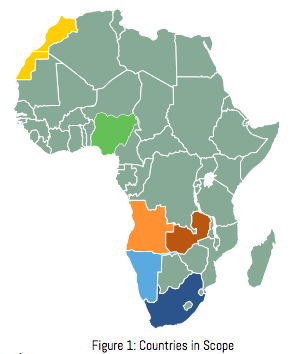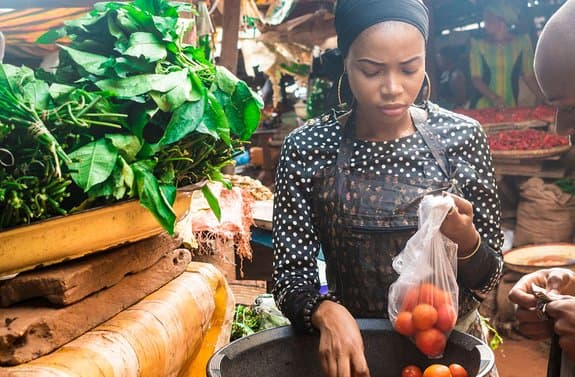
The African Cash Report 2018
Partially funded by the ICA, the new paper seeks to further the cash debate with relevant insight into the role of cash in Africa.
By focusing on the unique relationships people have with cash across six countries in Africa: Angola, Morocco, Namibia, Nigeria, South Africa, and Zambia, the paper finds that cash in circulation is growing and growing steadily.
Cash is growing in value across all the countries covered in this report.
The value of cash in circulation has been growing steadily across the six countries covered in this report between 2008 and 2017. Zambia showed the highest growth with a 14% compound average growth rate (CAGR) in the value of cash in circulation over the last 10 years. Angola and Namibia both saw CAGR of 11%. Morocco and Nigeria, on the other hand, only saw a 6% CAGR between 2008 and 2017. South Africa has seen a CAGR in value of cash in circulation of 8% (p. 37)
Each county has a unique relationship with cash:
- ANGOLA is in the process of swapping out low-value banknotes for coins, while at the same time introducing higher-value banknotes into circulation.
- MOROCCO has made good strides in reducing poverty but still has a largely underbanked population. It also has one of the highest cash-in-circulation to GDP ratios, which shows a high reliance on cash in the economy.
- NAMIBIA has a fairly new currency. It was first printed in 1993 after Namibia gained independence. The value of the currency is kept on a one-to-one parity with the South African rand and the rand is also legal tender in the country.
- NIGERIA has a high volume of banknotes and a population that is very reliant on cash. According the InterMedia Financial Inclusion Insights’ (FII) 2016 Annual Report, almost 50% of Nigerians generate income through informal sector employment, which relies almost exclusively on cash.
- SOUTH AFRICA has the most mature banking and payments sector in Africa. In July 2018, the South African Reserve Bank released a complete series of commemorative circulating banknotes for Nelson Mandela’s centenary. This was also an opportunity to introduce new substrates and features.
- ZAMBIA decided to re-denominate the currency in 2013 to counteract the effects of a period of high inflation. The currency-rebasing exercise entailed dividing all denominations by 1000. As part of this process, all banknotes and coins in circulation were replaced with the rebased currency.
Many of the economies in Africa are still extremely reliant on cash for everyday transactions and large informal markets drive the usage of cash for transactions
According to a recent report cash accounts for over 50% of transaction value in South Africa. This is despite south Africa having the most mature banking and payments ecosystem of any of the countries covered in this report. In Nigeria, much of the population operates in the cash-based informal sector (p. 43).
- The Banco Nacional de Angola
- Bank Al Maghrib
- Bank of Namibia
- The Central Bank of Nigeria
- The South African Reserve Bank
- The Bank of Zambia
Cash Matters is funded by the International Currency Association (ICA).
About the ICA
The Industry Currency Association aims to provide a powerful and cohesive voice to keep currency a preferred payment choice. Their mission is to support and promote currencies worldwide, provide a framework to foster innovation and encourage the highest ethical standards.





